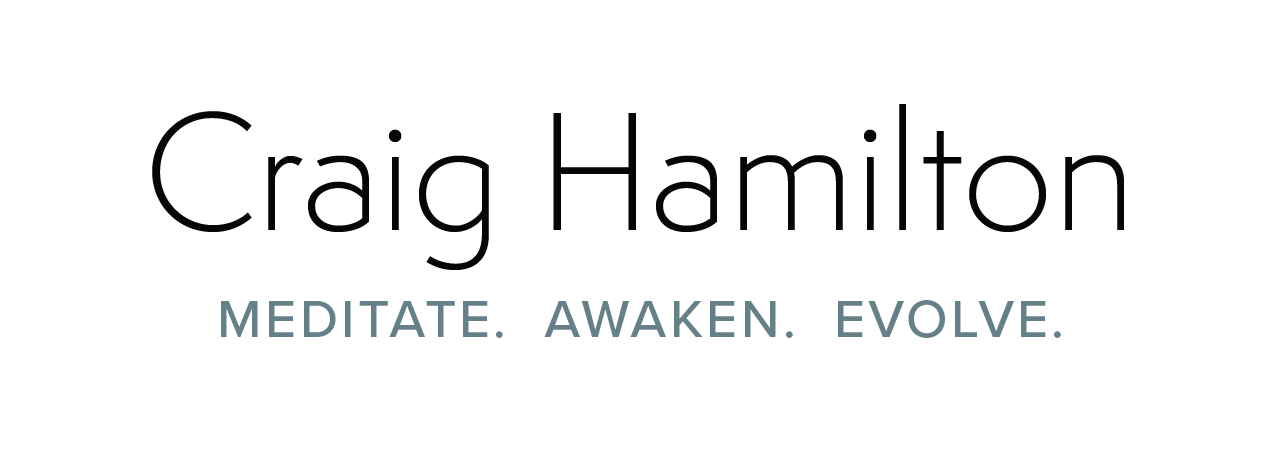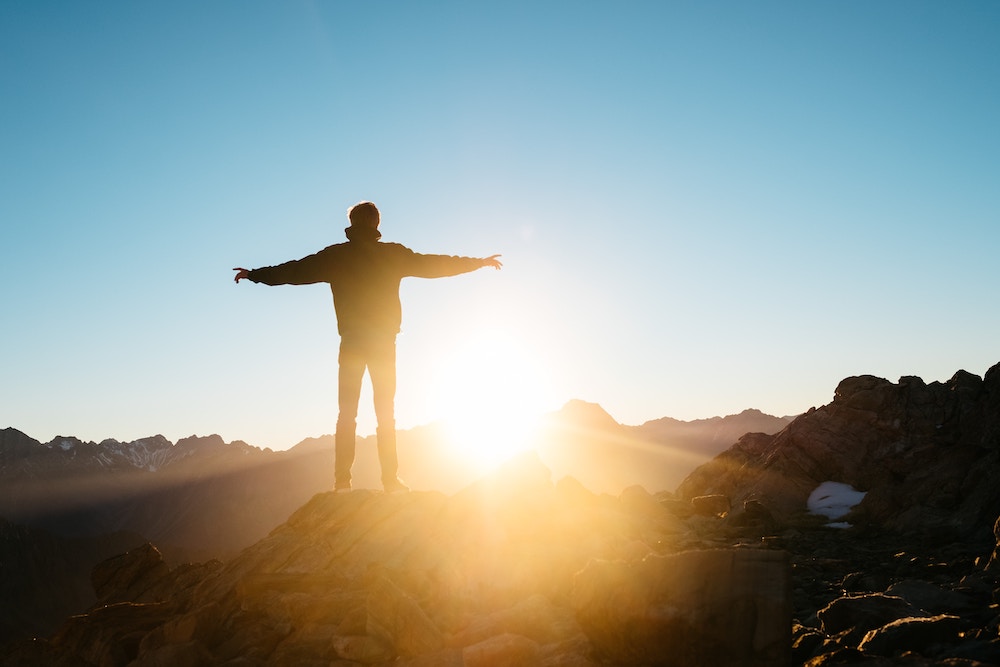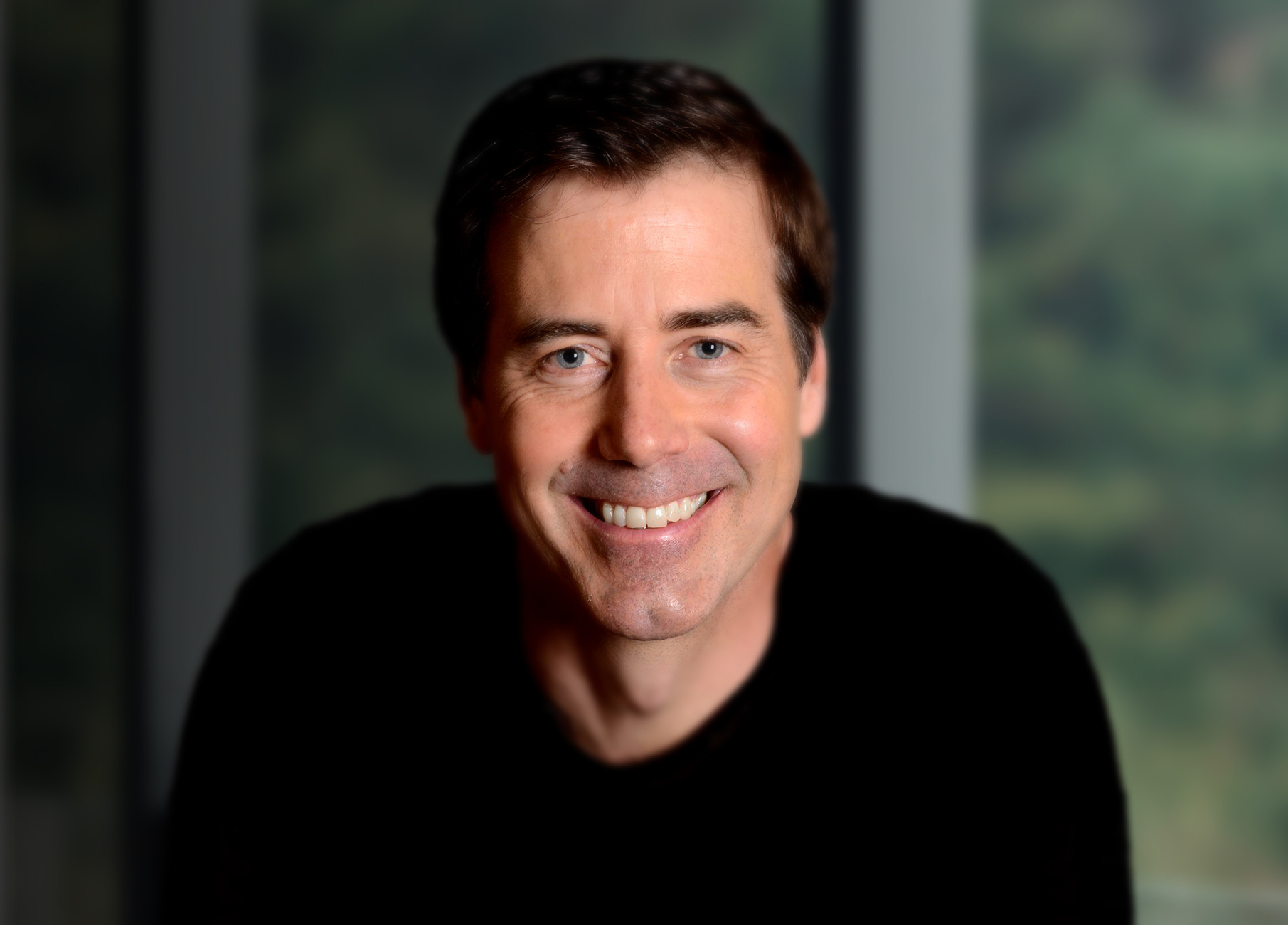I’m a person of strong opinions, and that often gets me into trouble. How can I balance having conviction with remaining open in my search for truth?
Answer:
That’s a wonderful question. Can anybody relate to having strong opinions? I have pretty strong beliefs about a lot of things, and most of us could probably say the same about ourselves.
The challenge with having strong opinions is that we often end up holding them too tightly, which obstructs us from seeing the truth. Taking this kind of rigid position can make you feel very confident and secure. But at the same time, it can dramatically reduce your ability to see things clearly.
For example, if you have an opinion that you really believe in, it’s going to be hard for you to accept any information that might contradict it. So, in a sense, a strongly held opinion can become a strongly defended opinion. If you’re holding onto your opinions too tightly, you’re going to end up defending them and fighting for them, no matter what. And often at the expense of the truth.
This is just how human beings are. We’re full of strong opinions. We want certainty, and we will grab onto viewpoints or conclusions prematurely in order to get it. As soon as we know enough to feel like we know, we tend to decide what’s true and defend that position. The ego’s self-image is tied up in being right. Everybody is invested in feeling like someone who is on the “right” side.
The good news is that it’s possible to have strong opinions and convictions, while also remaining open to different ideas and perspectives. But it’s a very challenging and subtle position to take.
I’ll use a concrete example of a kind of opinion that we tend to hold a little too tightly to help illustrate this point: political beliefs. This is an area where we tend to get really locked in. Many of us, whether we admit it or not, believe that our chosen political party and its various positions are totally right and the opposition is totally wrong. We tend to think that our view is so obvious that we can’t believe anybody else could think otherwise. We believe that people who think the other way are all crazy, selfish, even evil. And I don’t think this is an exaggeration. If we don’t go to that extreme ourselves, we know plenty of people who do.
So the problem with something like politics is that when we really step back from our strongly-held political opinions, many of us find that we are not nearly as informed as we would need to be in order to hold our opinions as strongly as we do. These rigidly held views often stand on a pretty weak foundation. We haven’t done that much research or even read the other side’s counterarguments. We may have read a few articles and had a lot of conversations with our family and friends, but we haven’t necessarily become enough of an expert on things like economics or debt reduction or systemic social issues to back up our strong opinions. But nonetheless we do. We tend to be full of opinions, but not that full of information.
So one criteria for having a truly valid opinion would be that you are well informed. You’ve done your research, you’ve looked into things, you have a lot of experience in the areas that you’re talking about. You can authentically say that you’ve thoroughly evaluated an issue and are confident that a particular approach is best.
But can you imagine having that kind of well-informed confidence in your view and still fundamentally knowing that you might not be, right? This is what I would call the birth of humility. Humility, in this sense, means that you know you don’t necessarily know the right answer. You may have done a lot of research and based on everything you can see, you feel confident in a particular answer or direction. But deep down, you know that you don’t know for sure. And because you know that you don’t know, you assume an inward posture of openness. You’re relatively confident in your beliefs, but you’re interested in any new information that might further enlighten your perspective. You’re holding a position of humility because you know that you can’t know everything. You’re open to anything that might change your mind, expand your perspective, or add more nuance to your position.
One of the best ways to start to cultivate this perspective in yourself is to start experimenting with taking on opposing viewpoints. When you feel like you might be holding onto a position too strongly, take the time to consider the other side. Simply take a step over that imaginary line surrounding rigidly held beliefs and temporarily adopt a different view. Feel into it and do your best to see the truth of it. I’m not saying that you should drop your own beliefs entirely or falsely adopt something that seems wrong in the name of openness. I’m simply suggesting that you “try on” a different perspective. Take them for a test drive to see if there’s any truth you might be overlooking.
One of the great insights of integral theory—one that the philosopher Ken Wilber often makes—is that everybody’s right, but some people are more right than others. This means that there’s a nugget of truth to everyone’s viewpoint. So when we try on other people’s perspectives, even those we don’t agree with, we’re able to see those nuggets of truth in their view. This shifts us into an orientation where we’re no longer defending our own positions, but are actually interested in the truths held by all sides of an issue. And because most issues are generally more complex than they seem, taking this approach gets us much closer to the actual, multidimensional truth.
In order for this to work, you have to do it for real. You have to have the courage to temporarily let go of your entire point of view and entertain another. You have to be willing to accept that an opposite viewpoint might actually be right, or at least be more right than you thought. Even if they’re not ultimately right with a capital “R,” they’re probably right about some things. Some of their critiques of your position are probably right, and some of the things that they’re advocating for are probably important.
It’s important not to confuse the mentality I’m advocating with being wishy-washy or just sitting in the middle on everything. A lot of people make this mistake. They assume that because there’s truth on both sides, therefore there’s no point in holding any opinions at all. They mistake the fact that everyone’s perspective has some element of truth for the fact that there’s no such thing as truth. This is relativism, and it’s not what I’m talking about.
Relativism is very common these days. And it leads to a kind of apathy and inaction, because people refuse to hold any convictions at all. They decide not to make the effort to do anything in the world, because they can’t know for sure that what they do will be right. Because they know it’s impossible to be 100% sure about anything, they’re not willing to risk being wrong. So they end up being cut off from any source of passion, conviction, strength, courage, or clarity.
The orientation I’m advocating has nothing to do with abandoning your convictions. I’m talking about being willing to temporarily suspend them in order to remain open. And we’re not letting that openness prevent us from acting. When things become clear to us, we’re still taking action. We’re just open to new information that we encounter along the way.
The other piece we need to bring into this discussion is the fact that we all have different degrees of certainty in different areas. For example, let’s say that you’re an environmental science professor and know your field inside and out. You’ve studied it thoroughly and have entertained all of the various points of view on the subject.
Your opinion is probably much more informed and more likely to be closer to the truth than somebody who doesn’t have all that background. Your view is going to be more valid than someone who’s just picked up a few talking points from the media or had a conversation with their “expert” friend. In this case, you have a relative degree of certainty, and because of this you’re going to be more willing to act on it with confidence. You’re going to be more willing to put yourself behind your viewpoint because you’ve spent so much time studying the various dimensions of the issue.
At the same time, you’re going to continue to hold a certain amount of innocence about the subject. You’re going to remain open to new knowledge, because you know how complex it is. You really care about finding the truth. You want to make sure you know the areas where you might be wrong, so you’re going to keep challenging your assumptions.
Then there’s the other side of the certainty spectrum. All of us have areas where we’re very uninformed. That’s okay. We can’t all know everything. But it’s especially important to have humility on these subjects.
Take foreign policy, for example. You might reflect on your actual understanding of this topic and say “You know, the truth is that I don’t really understand the complexities of global foreign policy dynamics. I may watch some of the Sunday TV shows and read magazine articles, but I’m not really an expert on the subject.” So even if you have a strong opinion, you know that your opinion is based on limited knowledge. Therefore, you’re not going to throw your convictions around very strongly. Of course, being uninformed doesn’t mean you can’t express an opinion. You’re just not going to hold it too tightly, and you’re going to be careful about all the areas that you just don’t have that much knowledge of.
So it’s important to know what we know a lot about, know what we know less about, and know what we know nothing about. And even in the areas where we’re confident in our knowledge, we’re still fundamentally holding it all in a place of innocence and genuine interest in finding out what’s true. No matter what conclusions we’ve come to and how well informed they seem to be, we’re always ready to find out where we might be totally wrong.
We’re trying to walk a kind of razor’s edge in ourselves where we’re able to stand for what we believe to be true, but know that we don’t have the whole picture. We’re able to take action on our convictions, but be ever-open in the face of the complexities that we might not be aware of, the information we might not have, and the perspectives we might not have looked at before. We have wisdom, and we have to be willing to stand for it, but we have to always be ready to have our perspectives expanded, deepened, and widened.











Thank you Craig for this very important and relevant article. Our world can definitely benefit from more tolerance and respect for one another’s differences of opinion. We very much need this kind of meta-awareness of our own and others’ beliefs that you talk about. I agree that we could use a lot more humility as each of us bring wisdom and an aspect of truth to help paint the big picture, and that’s hard to see if we are caught up believing we are right and the other is wrong. Valuing each other and embracing our differences is going to help us be more whole as a humanity as we each bring a piece of the puzzle.
I think we need to see beyond the opinions and beliefs we hold because underneath all of that are fundamental shared human needs for safety, for love, the desire to be seen, accepted, treated with respect. When we can see this and connect with this deeply, we can then truly come together as a humanity – united in love and respect for one another and ready to solve the world’s problems together.
We would benefit from exploring what underlies our reactivity to opposing views, taking responsibility and having the courage to do the deep work required to clear the way for a much deeper understanding and expansion of our own consciousness. This is the way to the healing of our planet.
Thankyou so much for this article, it has certainly made me look at my belief in something I’ve been holding on to for a few years now. I read, researched and devoured every word on a topic I’d rather not disclose and couldn’t see anyone else’s perspective at all. I just wanted the truth and everything I read seemed to fit a particular scenario that had happened to me. I became obsessed with the subject, trying to gain more and more knowledge to prove I was right. You have made me realise that I’m not all knowing, not an expert and I have to accept others points of view even if they disagree with mine. Yes, I can still have an opinion but someone has the right, as I have, to differ.
This article is certainly worth rereading so it’s message reaches the multi levels of fludity it speaks of.
Yes like any highly sensitive human being, having strong opinions and being in tune intuitively with ‘the big picture’ can certainly give a sense of being well informed.
I realise reading this message, that others have their way of accessing their understanding.
Being open and willing to learn so opinions are not held tight empowers all involved.
Much food for thought, thank you